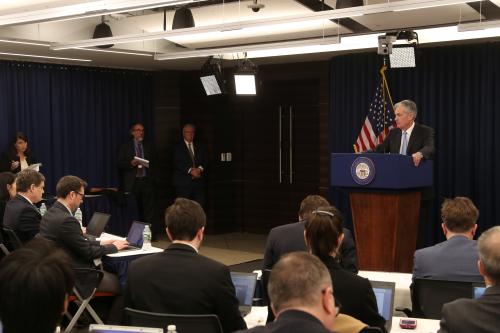On June 8, Senate Democrats and Republicans came together to pass the $200-billion Innovation and Competition Act, a broad legislative package aimed at advancing the nation’s R&D competitiveness with China. The 68-32 vote was a rare bipartisan convergence on two frequent points of division: money and state involvement in the economy.
But that’s not all that was striking about the vote. Also noteworthy is the bill’s proposed creation of 18 “regional technology hubs” to spur economic growth in new places, which represents the nation’s most significant foray into regional policy in decades—maybe since the Great Depression.
For decades, Congress has neglected the nation’s sharpening regional divides. New economic trends spawned a growing gap between the dynamic, “superstar” metropolitan areas and everywhere else. Meanwhile, policymakers quibbled, argued, and stood by as chasms opened between income levels in coastal, tech-focused metro areas and those areas “left behind.”

A 2019 Brookings report documented that just five top innovation metro areas—Boston, San Francisco, Seattle, San Diego, and San Jose, Calif.—accounted for more than 90% of the nation’s innovation sector growth from 2005 to 2017.

But what to do to counter this dramatic divergence hasn’t always been clear. Since the 1960s, Congress’ place-based responses have mostly amounted to limited, ad-hoc investments in grants, programs, and tax benefits that have been too small and too inconsistent to resolve the huge economic forces pulling the nation apart. What resulted has been inaction.
But now, senators from both sides of the aisle have come together to recognize the economic, social, and political crisis of interregional inequality—and endorse the use of place-based government action to counter it.
Lawmakers have drawn on arguments and ideas from Brookings and MIT professors Jonathan Gruber and Simon Johnson to respond to regional divergence by creating a set of place-based tech hubs in inland America aimed at catalyzing local economic growth. Originally, the bill proposed creating eight to 10 hubs scattered across the heartland at a cost of $10 billion over five years. By the time of the final vote, the number of hubs had doubled to at least 18, supported by the same budget—reflecting a push from smaller states’ senators so that more towns and rural areas could get a slice of federal R&D spending.
Despite the change, something approaching a bipartisan consensus about the nation’s regional divergence problem seems to have coalesced. A preponderance of senators from big states and small states—and blue states and red ones—appear to generally agree that:
- The status quo—as reflected by the nation’s uneven innovation map—is unacceptable
- The nation can and should act to counter that unevenness
- The nation needs not just nation-scaled responses but place-based ones as well
This is a milestone, and a far cry from the philosophical and policy divides that have typically embroiled all three of these propositions.
Still, the idea of creating sizable tech hubs prompted fierce debate among the senators about the geography of the program, while the regional question could encounter stiffer headwinds in the House. What’s more, nothing currently under consideration comes near to meeting the needed scale of comprehensive action to counter the nation’s gargantuan regional imbalances. Truly meeting the challenge will require pairing much larger place-based interventions such as innovation hubs with “place-conscious” adjustments to big “universal” programs addressing topics such as poverty, infrastructure, workforce development, aid to localities, and market concentration, as notes sociologist Robert Manduca.
Despite these cautions, this week’s Senate vote really could go down as a watershed. Within the bill’s top-line focus on industrial policy lies an emerging consensus that the nation’s ruinous regional divides aren’t working for anyone, and need to be addressed. Now, finally, we can start to do so.
The Brookings Institution is committed to quality, independence, and impact.
We are supported by a diverse array of funders. In line with our values and policies, each Brookings publication represents the sole views of its author(s).







Commentary
Senate Republicans and Democrats agree: Time to close regional economic divides
June 10, 2021